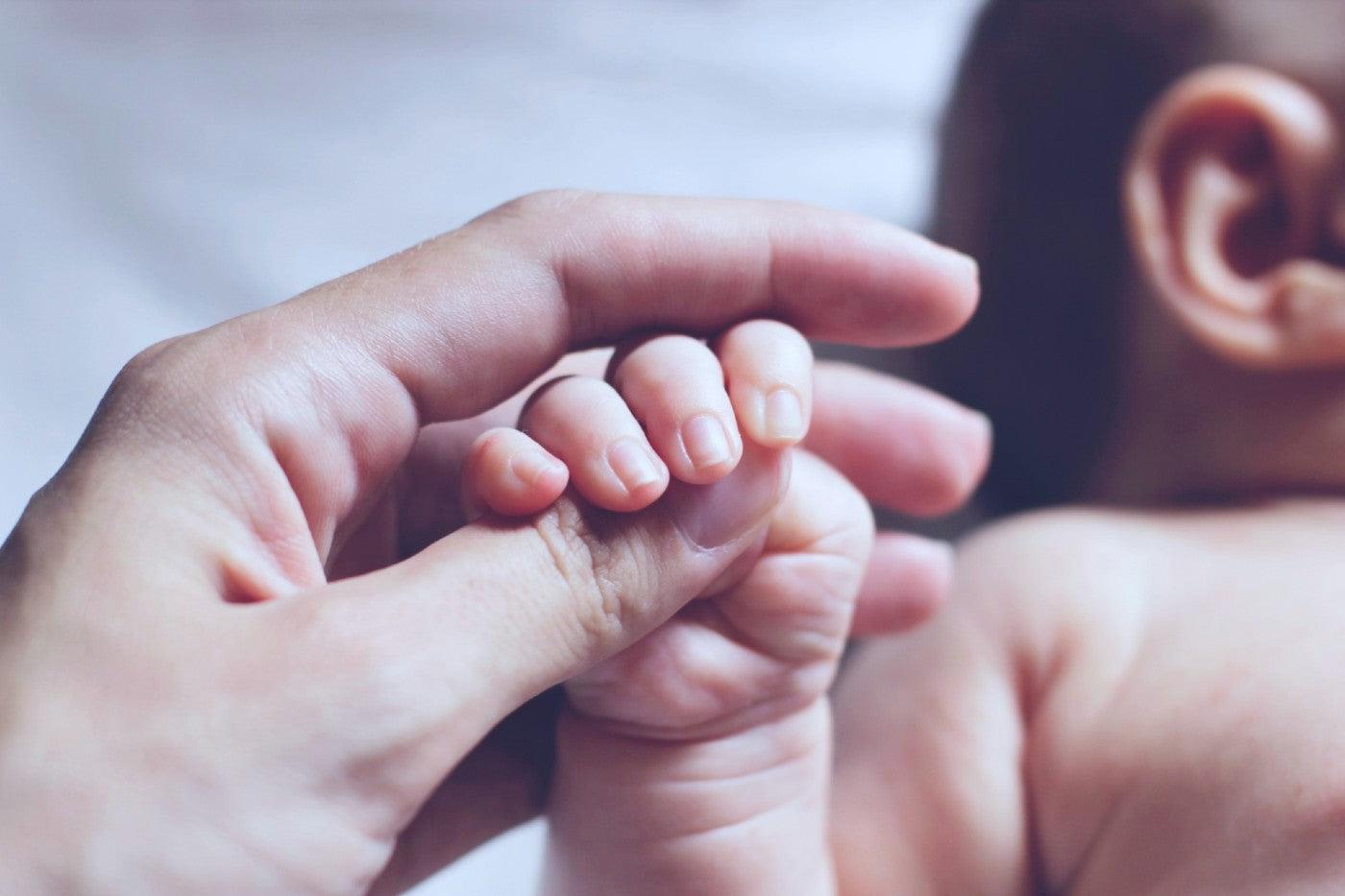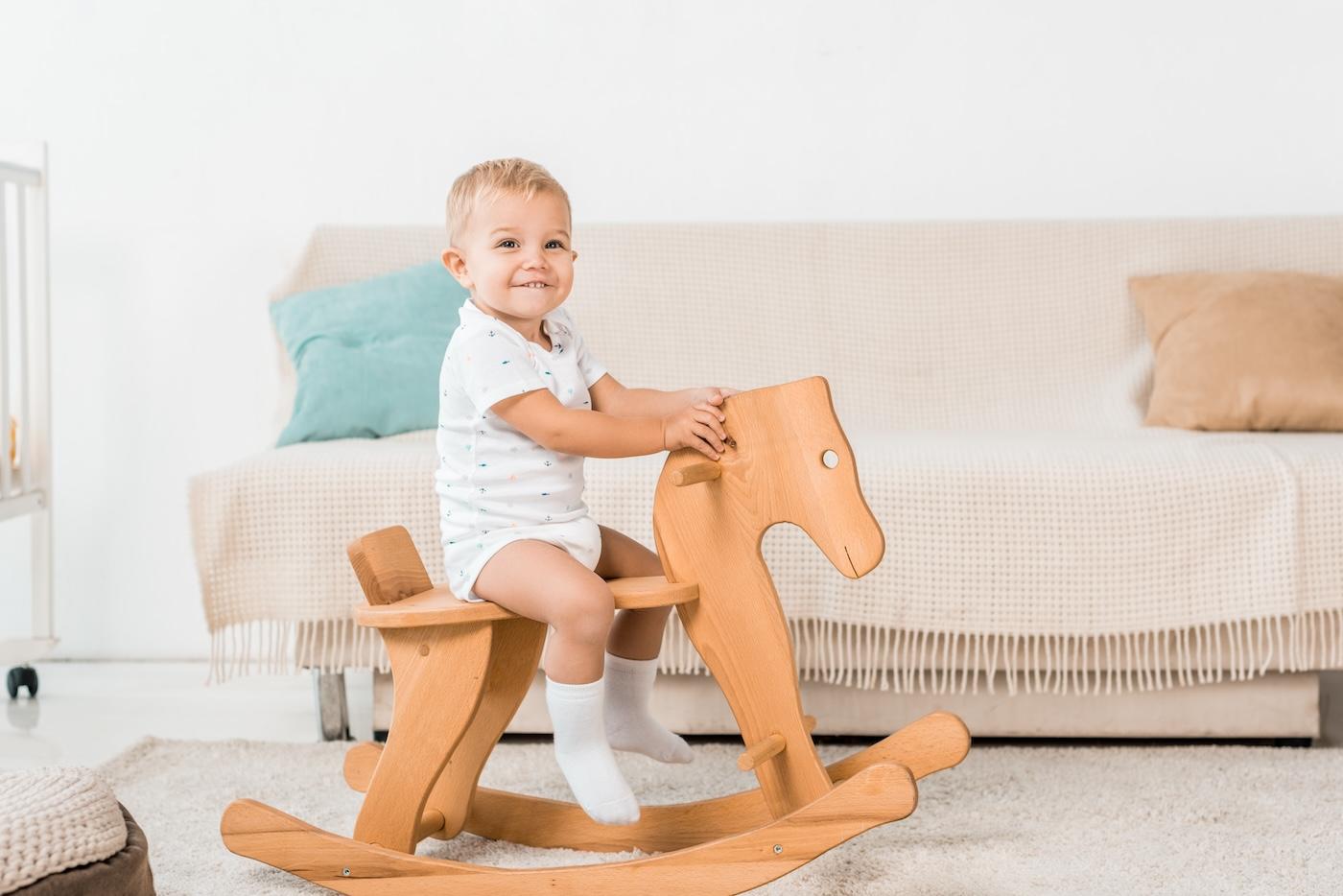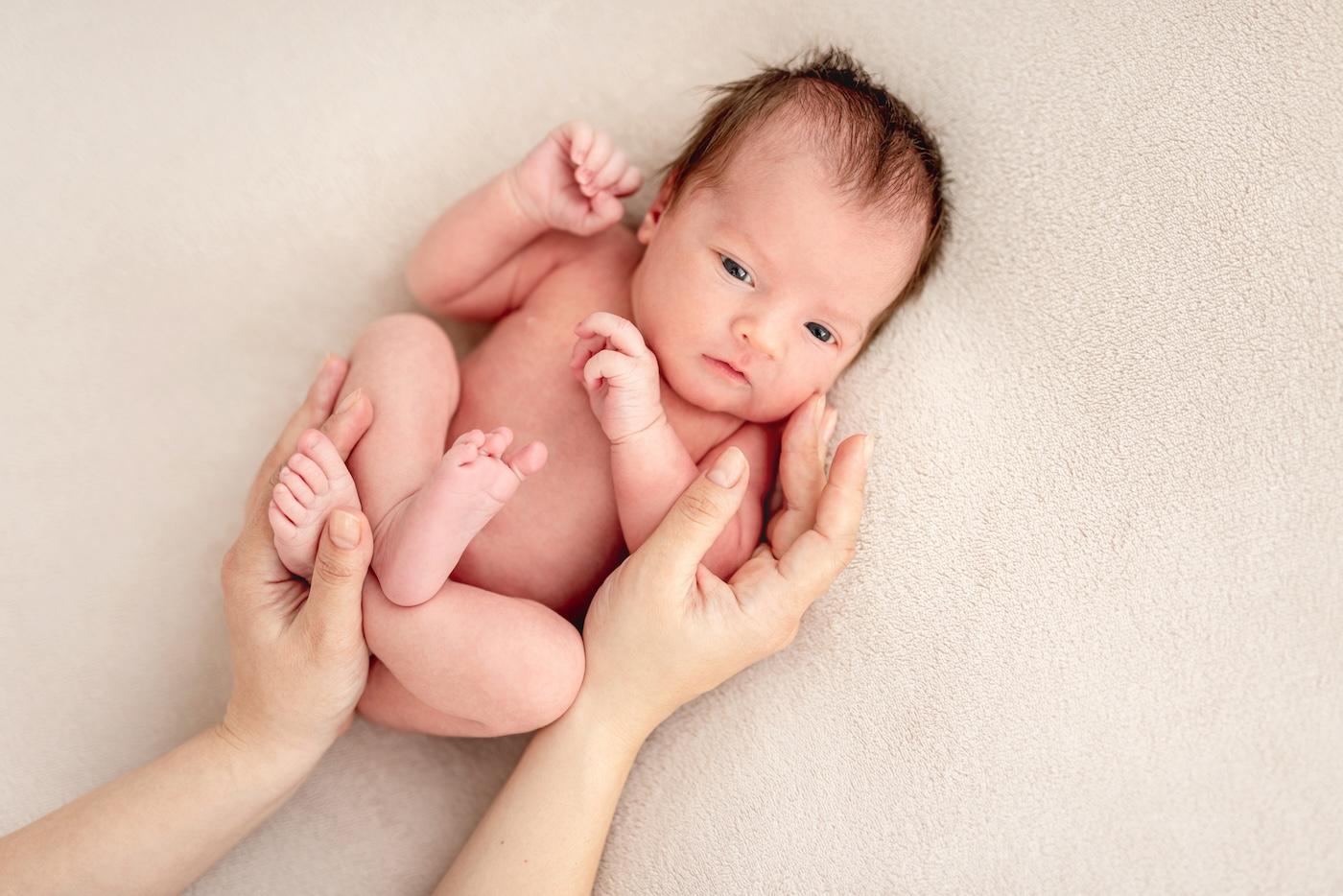BABY
How to Trim Your Baby's Nails
With some deep breaths and these tips, you will be successfully trimming your baby’s nails in no time.

Written by
Happiest Baby Staff

You know how babies grow so fast? The same holds true for their fingernails. In fact, when your baby is a newborn, you will likely have to tend to their nails weekly…or even more frequently!
Staying on top of this task is important: Newborns have barely any control over their teeny hands and fingers, making stray scratches on their faces a real possibility. No one wants that. Of course, no one wants to accidentally nick their little one’s skin while trimming their nails, either! But with some deep breaths and some solid tips, you will be safely and successfully trimming your baby’s nails in no time.
Try filing your baby’s nails.F
Because your baby’s nails are super-soft and thin (and small!) during their first few weeks, you may find it easiest to simply file their nails with an emery board (not a metal file). This does take more time than trimming with baby nail clippers, but it is very safe. You simply need to avoid accidentally filing the delicate skin under your baby’s nail bed. Once your baby’s fingernails start to harden—and you begin to feel more comfortable—feel free to transition to clippers or baby nail scissors.
How to trim your baby’s nails with clippers:
Nerve-wracking? Yes! Impossible? Not at all. Before you let anxiety take over, here are a few tips to help you get through those scary encounters with a nail trimmer.
- Ensure a trim is needed. Snipping already short-enough nails increase the chances of accidental nicks. A good rule of thumb: If your baby’s nails are long enough to scratch their face and eyes, it is time to cut their nails.
- Buy special tools. Do not use a manicure set designed or grownups! Instead, use baby nail scissors—which have rounded tips for safety—or baby clippers.
- Hold your baby’s hand. Keep your little one’s palm and fingers steady with one hand and trim their nails with the other.
- Wait until your baby is fast asleep. Since you never know when your baby will fidget or move their hands, you can reduce the risk of an accident by making sure your baby is sleeping before you begin.
- Never use your teeth! As tempting as it might be, never chew or bite your baby’s nails. This practice can introduce germs, which can lead to infection.
- Push on the fingertip. Gently press the skin on your baby’s fingertip so you can get the clipper or baby scissors around both sides of the nail.
- Round the edges. When cutting your baby’s fingernails, follow the natural curve of the fingertip while keeping a little bit of a 'moon' so that you do not trim too much off, accidentally cutting the quick, which is the center of the nail where the nerves and blood supply are.
- Trim toes this way. Unlike fingernails, toenails need to be cut straight across to prevent in-grown nails. (PS: Toenails grow slower than fingernails so, you do not have to trim them as often.)
What about baby mittens?
If you are too nervous about cutting your newborn’s nails, baby mitts can be used temporarily to keep nails safely away from your sweet baby's face. But as your baby develops over their first several weeks, it is best to allow your child lots of time to freely use—and explore with—their hands.
What to do if you cut your baby's finger:
First, do not panic! Accidents happen. Simply rinse the cut with cool water and gently press with clean gauze to stop the blood. But do not apply a bandage, as that could quickly become a choking hazard.
Before you know it, you will be a nail-cutting pro. You may even find that you like to keep a pair of baby nail clippers with you at all times, so you can quickly get the dreaded deed done anytime your child falls asleep in the car or stroller!
Disclaimer: The information on our site is NOT medical advice for any specific person or condition. It is only meant as general information. If you have any medical questions and concerns about your child or yourself, please contact your health provider. Breastmilk is the best source of nutrition for babies. It is important that, in preparation for and during breastfeeding, mothers eat a healthy, balanced diet. Combined breast- and bottle-feeding in the first weeks of life may reduce the supply of a mother's breastmilk and reversing the decision not to breastfeed is difficult. If you do decide to use infant formula, you should follow instructions carefully.
SHARE THIS ARTICLE
PARENT PICKS
Bestsellers



















